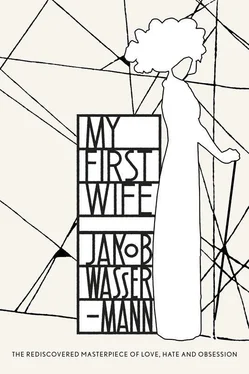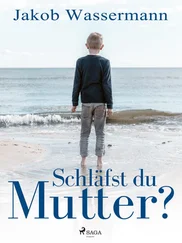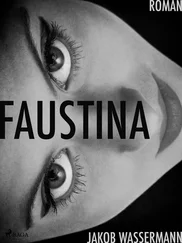But where was I to go? Back up into the mountains? […] If such a way doesn’t lead to death or to an utterly changed life, then it is a farce. After the conversation with Bettina I wandered around the house and garden all afternoon, I was unable to read, to work, to think, I couldn’t even properly see. Basically it isn’t that endlessly foolish oath that frightens me, it’s all the futility, all that endlessly foolish futility that is destroying my life. […]
But in the end it’s just words on paper, which can be turned and twisted and perhaps challenged by a higher instance. There remains a residue of division and human frailty. The other day I said to Bettina this whole enterprise feels as though I have a hammer that will not do what I want, which is to drive one nail into another, smashing the head of one, the point of the other.
So what do I need? A hand to help me past an obstacle whose nature I cannot ascertain. A human breath to imbue me with the spirit of understanding. Understanding would surely illumine me like a flash of lightning ripping apart the sheet of darkness. And then the devil riding over the wreckage of my life would disappear with a howl into the gulch of his hell. A slightly overdone image. But then I’ve lost all sense of measure. […]
My First Wife first saw print in Amsterdam in the autumn of 1934, with the firm of Querido. Its blacklisted German Jewish author, sick for some time with heart and kidney trouble, diabetes and general exhaustion, had managed to complete it and secure its publication with this newly founded firm of exile publishers — having been at the last turned down by the somewhat pusillanimous and anxious Bermann Fischer, the son-in-law and heir to the German Jewish publishing firm of S. Fischer, which had successfully published twenty-eight of Wassermann’s books in an association lasting thirty-two years (the retired founder, Samuel Fischer, increasingly deaf and increasingly terrorized, was himself to die on 15 October of that year) — but did not live to see it, or to write his intended preface to it, having died punctually on New Year’s Day 1934 at the age of an even sixty. The project he was revolving in his mind at the time of his death — because his circumstances were such that he had to go from one book to the next, without the least break, even while contemplating an old age of fear, penury, homelessness, dishonour and exclusion from the literature of his native language — was, ironically, the story of Ahasuerus, the Wandering Jew.
At that stage, though, My First Wife was not yet a book. It was a book within a much longer book (ostensibly, a little like Italo Svevo’s La Coscienza di Zeno , it was ‘written’ by one character, the writer Alexander Herzog, at the insistence of another, the doctor Joseph Kerkhoven), which was in turn the third volume of a rather wandering and unfocused (and thereby all the more accommodating) trilogy. There was Der Fall Maurizius of 1928 ( The Maurizius Case ), Etzel Andergast (confusingly titled Doctor Kerkhoven in English) of 1931 and Joseph Kerkhovens dritte Existenz ( Joseph Kerkhoven’s Third Existence ) of 1934. The last-named is qualified by the German literary historian Peter de Mendelssohn as ‘not a complete success; no one would claim that it was’; as for the trilogy, that was nothing but a ‘superficial bundling-together’ of works that were never ‘intended to go together, formally or thematically’, and were ‘only loosely, even fortuitously, connected by continuities of personnel’, and even then ‘with the characters taking up completely different functions’. Henry Miller, a great admirer of The Maurizius Case , found the author ‘baffled’ — it’s a strange idea — by his own ‘sequels’.
It all sounds, in short, like too many other works by Wassermann, who all his life wrote too much, too quickly, too chaotically and abundantly (the tiny handwriting which he liked to claim saved him thousands of miles of script was actually rather a mixed blessing). Rotted brocade, historical melodrama, brilliance of details but paucity of overall design was a diagnosis he got all his life, from friends and critics alike (his long-serving, long-suffering editor, Moritz Heimann, even suggested he take a break from writing novels). In these last years, moreover, for reasons some of which will have become apparent, he was even more a driven man than ever. The saving difference is that, into his very last book, Wassermann smuggled the manuscript of — call it what you will, his novel, account, protocol, confession, masterpiece — Ganna oder die Wahnwelt , to give it its original title, ‘Ganna, or the Mad World’. If the trilogy had offered some coherence, then surely Bermann Fischer would have shown more interest in keeping the three volumes of it together (even with Nazi blacklists and book-burnings); conversely, if Joseph Kerkhovens dritte Existenz had been all about Kerkhoven, Wassermann would hardly have knocked himself out as he did (he suffered a major heart attack after the last of his meetings with Bermann Fischer in Vienna in November 1933) to get it published. The 2,000-odd pages of the trilogy aren’t the point; the 200-odd pages of My First Wife are.
What seems overwhelmingly likely to have been the case is that Wassermann, knowing he was dying and wanting to put out what was quite obviously the major story of his adult life, but — for reasons of pride, because he was something of a public figure, to protect the feelings of some of the survivors, perhaps not knowing how else to do such a thing — in such a way that it remained at least deniable, or half-hidden, ‘gave’ it to the character of Alexander Herzog. He built, if you like, a haystack for his needle. Because, as anyone reading it then or now can tell instantly, Ganna or (now) My First Wife is the true account of Jakob Wassermann’s first marriage to Julie Speyer of Vienna, with almost nothing omitted or changed. It is, de Mendelssohn says, ‘exactest, most scrupulous autobiography’, ‘authentic to the last detail’, ‘the true confession of the death-marked author, Jakob Wassermann’. Readers who knew the couple smirked or shuddered, according to taste. They confirmed (it’s easy to imagine): this is her all right — and him all right. When ‘Sami’ Fischer’s wife, the meddlesome and generally wrong-headed Hedwig, read Joseph Kerkhovens dritte Existenz , her suggestion to Wassermann — which speaks both to its self-sufficiency and its shock value — was that he leave out the Ganna section! (Still, even that response confirms me in doing the opposite: omitting the trilogy.) But there it is. Wassermann’s last baggy novel didn’t mind; his shapeless trilogy had nothing to say. It was not, finally, so much a framing device as a pair of shutters, or a lid. The pity of it is how well Wassermann’s stratagem worked. Until I blundered upon Ganna , and was promptly electrified, I had no idea such a thing existed; I had never heard of it. (Has anyone ever written so rivetingly about marriage?) Relative to its quality, urgency and interest, the 2008 German edition of Joseph Kerkhovens dritte Existenz I worked from has no readers. It has the status of an obscure also-ran among a once-fashionable and successful oeuvre that has almost in its entirety failed to survive. Effectively, what Wassermann did was to keep his best and most anguished work hidden from view for the best part of eighty years. It is time it were seen.
Both the writing and the — however misguided — publishing bespeak a once-in-a-lifetime, if not actually a mortal, exertion. The circumstances of the only book that I think can stand comparison with My First Wife , Ted Hughes’s Birthday Letters , are not dissimilar. Both books come wreathed in fiction: with Hughes it is the claim that these poems were ‘birthday letters’ written on Sylvia Plath’s anniversary over many years; with Wassermann it is the wholly uninteresting, wholly forgettable framing narrative. ‘In wartime,’ as Churchill said — and both books belong, so to speak, to military history, as well as embracing wars, the First in the case of Wassermann, the Second with Hughes — ‘truth must be protected by a bodyguard of lies.’ Both books were fought off by their authors for as long as humanly possible. Both books would not have been published without the prospect of imminent death. Both books have an unmistakable and inimitable burn.
Читать дальше







![Jakob Wassermann - Issue Does Not Exist],errors:{](/books/585068/jakob-wassermann-issue-does-not-exist-errors-thumb.webp)




